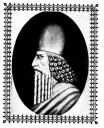Religion in the Ancient Middle East
Part 3: The Persians and the Rest The ancient lands of Canaan, Israel, and Judah were overrun at various times. The peoples who ruled them brought with them their own gods and religious practices. Wherever they went, the Hebrews kept their customs and their beliefs. After a succession of weaker empires, the ancient Middle East was consumed by the Persian Empire, beginning about 550 with the reign of Cyrus the Great.
Zoroaster also said that people could decide which god they wanted to follow. Those who followed Ahura Mazda, the god of good, did good deeds like keeping their word, giving to the poor, treating other people well, and obeying the king. Those who followed Ahriman did bad things, like lying, cheating, being lazy, and being greedy. Zoroaster believed that in the end, Ahura Mazda would triumph and good would win. People who supported this god would enjoy happiness after death. Those who supported Ahriman would be punished for that support. This religion, later called Zoroastrianism, was the religion practiced throughout the Persian Empire when Alexander the Great conquered it in 330. With his influence, Alexander brought the religion of the Greeks. First page > The Sumerians and Their Successors > Page 1, 2, 3
|
|
Social Studies for Kids
copyright 2002–2026
David White



 The
Persians were settled in the area long before that, of
course. And about 570, a man named Zoroaster told his people
about two gods, Ahura Mazda, who created all the good things
in the world, and Ahriman, who created all the bad things in
the world. These two gods were at war all the time. Their
struggle kept the world in a delicate balance. If one god
gained the upper hand, then more of his influence would be
felt.
The
Persians were settled in the area long before that, of
course. And about 570, a man named Zoroaster told his people
about two gods, Ahura Mazda, who created all the good things
in the world, and Ahriman, who created all the bad things in
the world. These two gods were at war all the time. Their
struggle kept the world in a delicate balance. If one god
gained the upper hand, then more of his influence would be
felt.

